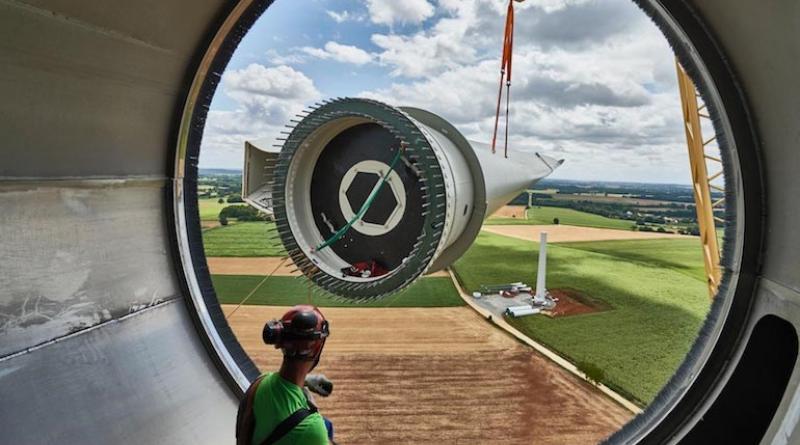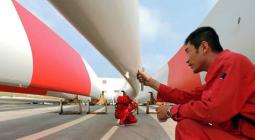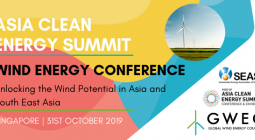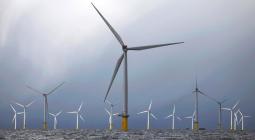Trade barriers 'hitting wind industry'.

Global Wind Energy Council calls for governments to ensure an open investment climate for the sector.
The Global Wind Energy Council (GWEC) is calling on governments across the world to refrain from introducing trade barriers that impact turbine equipment and to ensure an open investment climate for companies financing the global energy transition.
GWEC said several countries have introduced new trade barriers on commodities and components affecting the wind industry, as well as introduced new screen mechanisms to restrict global investment in the renewables sector, posing a major obstacle to meeting climate goals.
It noted that investment in renewables needs to increase to $2.4tn per year by 2050 if the world is to have a hope of heading off the dangerous effects of global warming, according to estimates by the UN's Intergovernmental Panel on Climate Change.
But tariffs on key commodities and components could add up to 20% to turbine supply chain costs in some cases could slow down the energy transition at a time when it needs to be accelerating, the council said.
New screening mechanisms introduced by countries and trade barriers have also led to a series of much needed planned investments in clean energy being cancelled, it added.
GWEC chief executive Ben Backwell said: “As global warming continues to break records putting the fate of our planet at risk, the world faces possibly its greatest historic challenge so far, and there is unprecedented public and political support for taking action.
“It is vitally important for countries, governments, companies and communities to be working together to scale up the deployment of technologies like wind energy that we need to decarbonise.
“And yet, every week we are hearing talk about new trade barriers and new restrictions on badly needed investments being introduced.
“Whether we are in Beijing, Brussels or Washington, we all face a common problem and need to cooperate to replace fossil fuels with renewables as fast as possible and at the lowest cost.”
Vestas senior vice president Morten Dyrholm said: “In today’s wind market, it’s key to invest in global reach and a global supply chain.
“As market growth fluctuates and there’s a strong push for localisation, having supply chain flexibility is key, but trade wars and barriers do real damage to businesses by inflating prices.
“It makes a global supply chain less global, making renewables less competitive.
“At Vestas, it’s clear that trade wars and barriers do not help spur localisation, and a healthy competition which is needed to attract investments”.
GWEC, the International Renewable Energy Agency (IRENA), the Chinese Wind Energy Association and the Chinese Renewable Energy Association have organised the first Beijing Renewable Energy Investment Summit in order to bring together key stakeholders from government, industry and the financial community to discuss how we to enhance cooperation, create appropriate investment climates and regulatory environments in order to increase investment in renewable energy.
IRENA director-general Francesco La Camera said: “With renewables, it’s possible to achieve a climate-safe future.
“Low-cost renewable energy technologies like wind power are readily-available today, representing the most effective and immediate solution for reducing carbon emissions. Unlocking global wind energy potential will be particularly important.”
21 October 2019
reNEWS.BIZ




